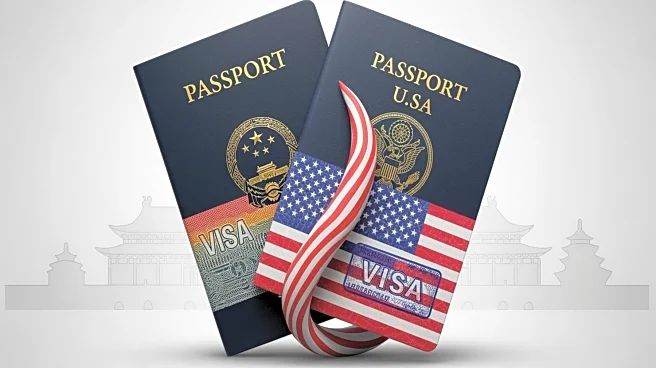What's Happening?
China has introduced a new K visa aimed at attracting young science and technology workers, coinciding with the Trump administration's increase in fees for highly skilled worker visas in the U.S. This move is seen as part of China's strategy to compete
with the U.S. in attracting global talent. However, the introduction of the K visa has sparked backlash within China, with concerns about the country becoming a hub for immigrants and potential impacts on local employment. The visa policy highlights the ongoing economic rivalry between China and the U.S., particularly in the fields of trade and talent acquisition.
Why It's Important?
The introduction of the K visa by China represents a strategic effort to bolster its position in the global talent market, potentially challenging the U.S.'s long-standing dominance in attracting skilled workers. This development could shift the balance in international talent acquisition, affecting industries reliant on skilled labor. The backlash within China underscores the complexities of immigration policies and their societal impacts, reflecting broader global tensions around immigration and employment. For the U.S., increased visa fees may deter foreign talent, impacting sectors like technology and research that rely heavily on international expertise.















